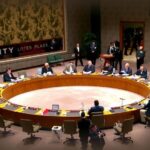India Calls for Transparency and Comprehensive Reforms in UNSC
India has criticized the lack of transparency in UNSC listings of terror entities, calling it a “disguised veto.” At a recent UNSC debate, Ambassador P. Harish highlighted the need for comprehensive reforms to address the Council’s effectiveness. He urged that piecemeal approaches risk failure, advocating for a cohesive reform strategy aligned with contemporary global realities.
India has expressed strong criticism regarding the lack of transparency in the United Nations Security Council (UNSC) process, particularly when it comes to rejections of listings of terror entities, labeling this situation as a “disguised veto.” During a debate focused on the UNSC’s working methods, India’s Permanent Representative to the UN, Ambassador P. Harish, emphasized the pressing need for reform within the 15-member council to enhance its effectiveness and credibility.
Ambassador Harish pointed out that while decisions on listing terror entities are publicly available, the rationale behind rejected or held listing requests remains secretive, known only to a select few. This lack of openness contributes to a perception of unfairness, particularly regarding how the Council addresses terrorism, which should be a priority based on the global community’s demands for security and justice.
India has raised concerns about how the UNSC’s subsidiary bodies, specifically the 1267 Al Qaida Sanctions Committee, manage the listing of global terrorists. The Indian government has argued that legitimate proposals backed by credible evidence are often blocked without justification, an act that undermines the Council’s commitment against terrorism, especially given recent instances involving Chinese opposition to India’s proposals.
Despite numerous discussions underscoring the need for reform, India lamented the minimal progress made towards actualizing changes in the UNSC. Ambassador Harish urged that Member States should cease mere dialogue and instead take decisive action to implement the much-needed reforms, reiterating that “It is time to move forward. It is time to show results.”
The Indian envoy advocated for a comprehensive approach to UNSC reforms, warning that piecemeal efforts would be ineffective. He articulated that any discussions must take into account the entirety of the Council’s workings rather than addressing clusters in isolation, stressing the importance of a cohesive and structured reform process.
Ambassador Harish also stated that outdated agenda items should not persist solely for political reasons and reinforced that the Council must engage meaningfully with the broader UN membership. He called for the periodic reports of the Security Council to be more analytical, providing insights into its functions rather than just listing activities, thereby allowing for a genuine evaluation by the Member States.
In summary, India has called for significant reforms in the United Nations Security Council, emphasizing transparency in the decision-making process related to listing terror entities and addressing the inadequacies in the Council’s functioning. Ambassador Harish has urged for a comprehensive reform strategy to ensure that the UNSC is responsive to current global realities, highlighting the necessity for a more open and collaborative approach among Member States.
Original Source: www.hindustantimes.com








Post Comment